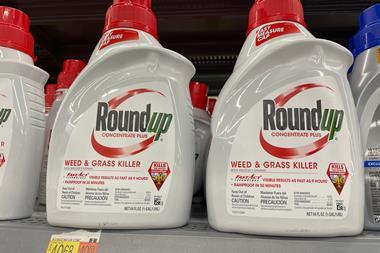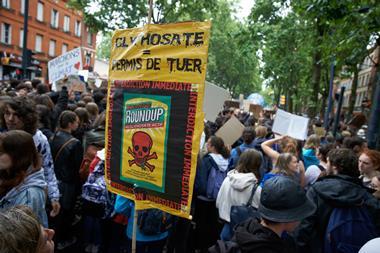EU extends glyphosate use amid political stalemate
The debate around the safety and regulation of glyphosate herbicides is set to roll on, as European regulators have renewed its approval for another 10 years. At a final appeal vote on 16 November, representatives of the EU’s 27 member states could not reach the required qualified majority to either support or block a proposal to reauthorise glyphosate for another 10 years.
As a result, the European Commission was required to take its own decision, and has granted a 10-year extension, with some new restrictions. These include prohibiting its use as a desiccant to control timing of harvests, as well as new limits on impurities and risk assessment guidance. Member states remain able to impose their own, tighter restrictions – such as France’s bans on domestic and municipal use.
As might be expected, the decision has met a polarised reception. Bayer-Monsanto and other members of the Glyphosate Renewal Group, as well as farmers’ groups from within and outside the EU, have welcomed the decision. Environmental and health campaigners have decried the outcome as a missed opportunity for increased restrictions.
All of this is going on against a background of thousands of ongoing lawsuits against Bayer-Monsanto – in the US, Australia and elsewhere – claiming that glyphosate exposure is responsible for various types of cancer. The outcomes of these cases have swung back and forth in recent years. Early US verdicts saw juries side with claimants – awarding enormous damages (although these were later reduced by the presiding judges). This was followed by a string of cases favouring Bayer-Monsanto, until late October, when the first of four US juries decided that glyphosate was responsible for their respective plaintiffs’ cancers.
However, in making its decision to re-authorise glyphosate, the commission made it clear from its assessment of the available information (which has taken four years) that there is no evidence to classify glyphosate as a carcinogen. Nor is it to be classed as mutagenic, toxic to reproduction or an endocrine disruptor. The commission also noted that this opinion is echoed by regulators around the world.
It would be easy to assume that, being one of the most closely studied compounds in the world, we should have a clearer understanding of glyphosate and its properties. But where the science is coloured by competing political and commercial interests, there will always be distrust and accusations of bias. Naturally, each side will choose to lean more heavily and attach greater credibility to evidence that supports its views, while picking holes and finding fault with that which contradicts it.
For now, the industry has done enough to convince an influential regulator, even if it has been less successful at convincing juries of late. But the argument is far from over.

















No comments yet